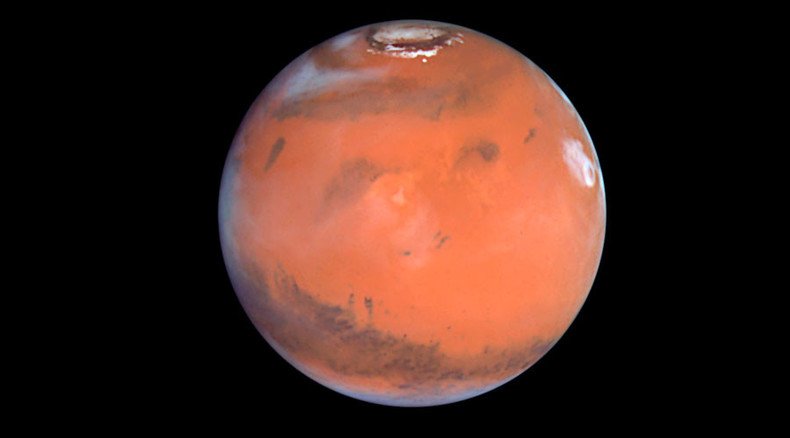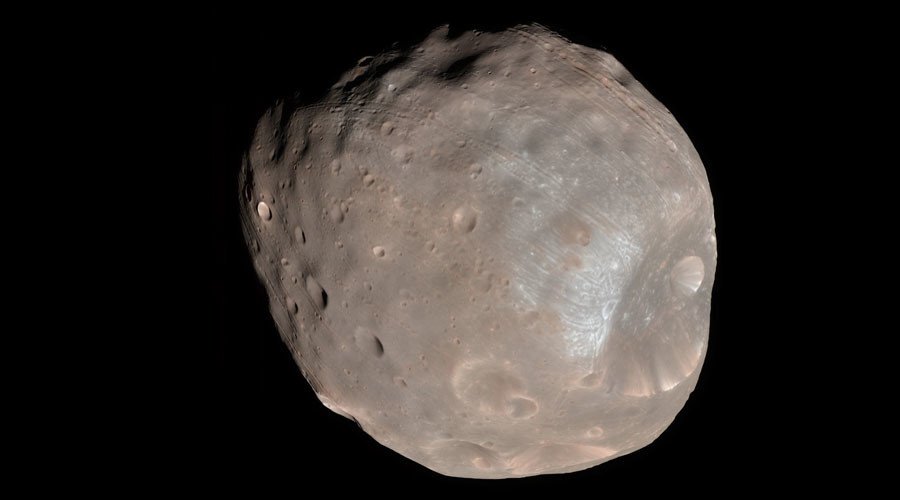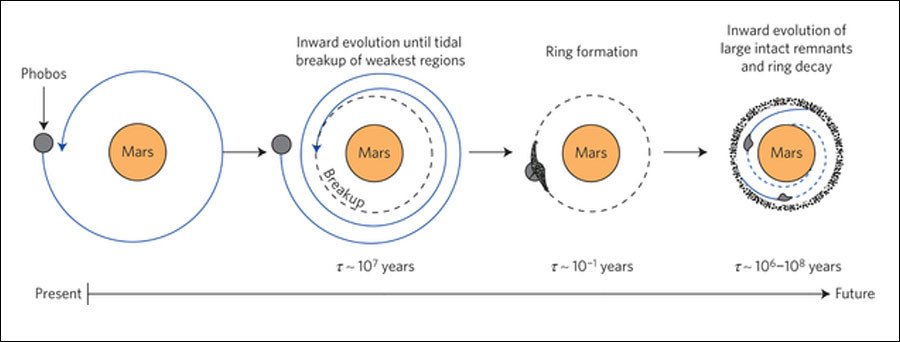Mars will become ringed planet after crushing its moon Phobos

It may take millions of years, but Mars will likely one day become the fifth ringed planet in our solar system.The Red Planet, scientists have calculated, will crush its small moon Phobos with the force of its own gravity, leaving just a belt of debris in orbit.
The moonlet circles the Red Planet some 6,000 kilometers above the surface – compared to the average 385,000 km that separates Earth from the moon. Since its discovery in 1877, Mars has pulled Phobos closer by roughly 2.5 meters or by 1.8288 cm (0.72 inches) each year.
“The orbit of Phobos, the larger of Mars’s two moonlets, is gradually spiraling inwards towards Mars and the moon is experiencing increasing tidal stresses. Eventually, Phobos will either break apart to form a ring or it will crash into Mars,” says the paper published in Nature Geoscience, by two researchers from the University of California in Berkeley.

The scientists calculated that the process will take between 20 and 40 million years, eventually taking place perhaps just 300 miles from Mars surface. Once the moon begins disintegrating, its demise could be spectacular, and would take just days or weeks.
“If you were standing on the surface of Mars, you could grab a lawn chair and watch Phobos shearing out and spreading into a big circle,” Benjamin Black, one of the authors, told Nature.

Models and fly-bys have determined that Phobos is made up of loose space rubble, brought together by gravity, and held inside by a firm outer core. The exact make up of its contents will determine what happens next.
“We predict Mars’s ring will persist for one to 100 million years and will initially have a comparable mass density to that of Saturn's rings,” say the authors.
Mars May Become a Ringed Planet Someday https://t.co/vCj8vW0Vn8
— SPACE.com (@SPACEdotcom) November 23, 2015A large core segment of Phobos will remain, and may also crash into the Red Planet, which could well be colonized by that point. However, the angle and speed of descent means it is not likely to wreak havoc.
“Any large fragment of Phobos that is strong enough to escape tidal breakup will eventually collide with Mars in an oblique, low-velocity impact,” promise the authors.
READ MORE: Upgraded Curiosity suggests water was repeatedly present on Mars – NASA
The paper reinforces NASA’s observations published earlier this month that showed “stretch marks” – kilometer-long grooves on the surface of Phobos, seen in photos, which “are the first sign Mars is tearing it apart.”
Scientists are now calling for a landing on the moonlet within the next decade to confirm the hypothesis.
“A future mission to Phobos, such as the proposed Padme, Pandora and Merlin Discovery-class missions, will provide better constraints on the interior structure and strength of Phobos, and consequently will allow us to test this conclusion,” said the Berkeley paper.
The team believes that the same sequence that is unfolding on Phobos may have led to the formation of other ringed planets in the universe, and say other moons with unstable orbits, such as Neptune’s Triton, may also experience a dramatic disintegration.













